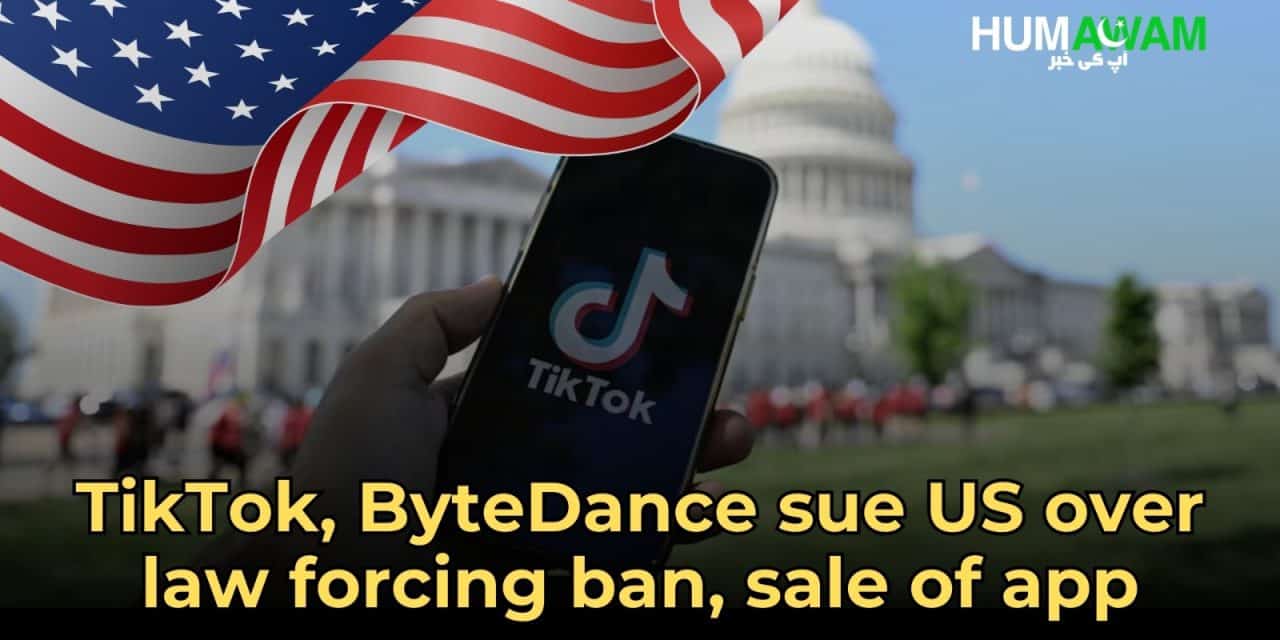Businesses claim law is unconstitutional, against First Amendment’s guarantees of free speech
On Tuesday, TikTok and its Chinese parent company, ByteDance, filed a lawsuit in a US federal court, attempting to overturn a bill that President Joe Biden had signed that would have required the 170 million Americans who use the short video app to either divest or outright ban it.
The businesses sued in the U.S. Court of Appeals for the District of Columbia Circuit, claiming that the law is unconstitutional on several grounds, including violating the First Amendment’s guarantees of free speech. Biden signed the bill on April 24. ByteDance has until January 19 to sell TikTok or risk being banned.
In their lawsuit, the companies claimed that “for the first time in history, Congress has enacted a law that subjects a single, named speech platform to a permanent, nationwide ban.”
The divestiture “is simply not possible: not legally, not technologically, and not commercially,” according to the lawsuit. … There is no denying that the Act (law) will compel TikTok to close by January 19, 2025, effectively shutting out the 170 million Americans who rely on the platform for unique forms of communication.”
For reasons of national security, the White House has stated that it is in favour of ending Chinese ownership, but not outright banning TikTok. Regarding the lawsuit, the Justice Department and the White House remained silent.
The lawsuit is TikTok’s most recent attempt to fend off attempts to shut it down in the US, as businesses like Snap and Meta try to take advantage of the political unpredictability of TikTok to steal advertising dollars from their rival.
Just a few weeks after it was introduced, the legislation was enacted by Congress with overwhelming support, fueled by concerns expressed by American lawmakers that China might use the app to access American data or spy on them. In the lawsuit, TikTok has accused US lawmakers of pursuing “speculative” concerns and denied ever sharing user data from US citizens.
The top Democrat on a House committee dealing with China, Representative Raja Krishnamoorthi, stated that the legislation is “the only way to address the national security threat posed by ByteDance’s ownership of apps like TikTok.”
“It’s time for ByteDance to start the divestment process, instead of continuing its deceptive tactics,” he declared.
The law forbids internet hosting companies from supporting TikTok and forbids app stores like Apple and Alphabet’s Google from selling TikTok unless ByteDance divests TikTok by January 19.
According to the lawsuit, TikTok’s success in the US is largely due to its recommendation engine, and the Chinese government “has made clear that it would not permit a divestment of that.” The companies claim that “prospective injunctive relief” is necessary and have asked the D.C. Circuit to prevent U.S. Attorney General Merrick Garland from enforcing the law.
The lawsuit states that 58% of ByteDance is owned by international institutional investors, such as General Atlantic, BlackRock, and Susquehanna International Group; 21% is owned by the Chinese founder of the company, and 21% is owned by staff members, who include roughly 7,000 Americans.
A major front in the ongoing dispute between the United States and China over technology and the internet is the four-year war over TikTok. Apple stated in April that due to Chinese national security concerns, China had ordered it to remove Meta Platforms’ WhatsApp and Threads from its App Store in China.
According to the lawsuit, TikTok has committed to further measures in a 90-page draft National Security Agreement that was developed through negotiations with the Committee on Foreign Investment in the United States (CFIUS) and has spent $2 billion implementing measures to protect the data of U.S. users.
According to the lawsuit, as part of that agreement, TikTok consented to a “shut-down option” that would allow the American government to ban the app from the country in the event that it broke any rules.
The lawsuit claims that CFIUS ceased having substantive conversations about the agreement in August 2022 and that in March 2023, CFIUS “insisted that ByteDance would be required to divest the U.S. TikTok business.” Under the direction of the U.S. Treasury Department, the CFIUS is an interagency committee that examines foreign investments in American companies and real estate that may raise issues related to national security.
The courts thwarted the efforts of the then-President Donald Trump in 2020 to outlaw TikTok and Tencent’s Chinese-owned WeChat in the country. Since then, Trump, the Republican running against Democrat Joe Biden on November 5 in the US election, has changed his position, stating that while he does not support a ban, security concerns must be taken into consideration.
If Biden thinks ByteDance is moving forward, he may decide to extend the deadline until January 19 by three months. According to the lawsuit, the continued use of TikTok by Biden’s presidential campaign “undermines the claim that the platform poses an actual threat to Americans.” There’s no TikTok usage in the Trump campaign.
Numerous analysts have questioned whether any possible buyer would have the funds to purchase TikTok and whether the governments of China and the United States would consent to the transaction.
The lawsuit states that it “would take years for an entirely new set of engineers to gain sufficient familiarity” to relocate the TikTok source code to the United States.





